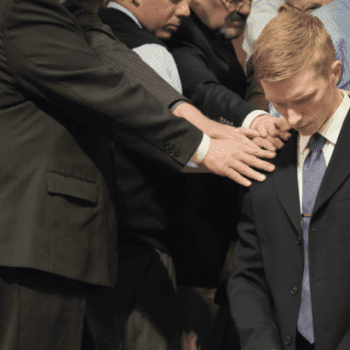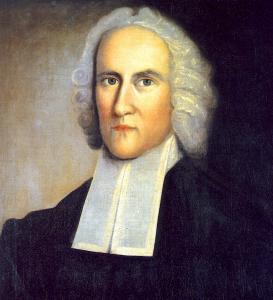
The final event of the “Politics of Jesus” conference, held on October 9-10 at the First Baptist Church of Durham, NC and sponsored by the Baptist State Convention of North Carolina, was a panel discussion with several young evangelical leaders from various sectors of society. The four people involved were: David Sanders, who recently wrote a piece for the Wall Street Journal, Tom Strowd, a worker in a pro-life ministry in Durham, NC, Sean Cordell, a young pastor from the area trained by John Piper, and Joshua Trent, a former White House employee. The discussion of the relationship between faith and issues of politics and culture was stimulating and personally refreshing.
The following is a rough abbreviation of the question-and-answer period.
Question for David: What changed and took you from a “Jesus is a Republican” mindset to writing columns that reflect a Christian mindset of a very different type?
A: I’m still very active, very conservative; grew up in a SBC pastor’s home. A lot of people in the movement I knew identified more with a political party than with Christ. The piece I wrote in the Wall Street Journal expressed concern over the fact that the Arkansas governor who recently ran for President seemed to be making tertiary matters first-tier matters. My criticism was that I was being labeled as not “pro-life” simply because I didn’t desire to support pregnant women with public funds. I want to lean on the Holy Spirit in my political life; I’ve struggled with how this works out.
Question for Josh: What were some characteristics you noticed in your time in the White House working with a number of evangelicals?
A: I was in the President’s Personnel Office. I recruited for about half of the slots available in the administration. Evangelicals all agreed on sanctity of life issues, generally. Questions like how Christians formulate policy on energy drew some disagreement.
Question for Tom: How can we approach the abortion issue today? Is this still a huge issue?
A: There have been 49 million babies killed in America since Roe vs. Wade in 1973. There are 45 million abortions per year in the world. God has created us for a purpose: God has created man for the purpose of worshipping and glorifying Him. We are all about trying to preserve life that God has created for a purpose. Others are perpetuating a holocaust. The multi-generational and multicultural nature of the church must galvanize us to help imperiled parents, especially African-Americans women who are aborting their babies in massive numbers. I hope that we will look back years from now and see that this point in history was a turning point. The Catholics in the 1960s caught this issue; evangelicals in the 1970s. There is now a third wave of cultural pro-life agitation, and that is in the African-American community. Pastors need to see this as a defining issue. By age 45, 43% of women have had an abortion in this country (Center for Disease Control), and 1 in 4 evangelical women have had abortions. The church must embrace this issue. It is a multicultural matter.
Question for Shawn: What have you learned in inner-city ministry?
A: When I preach, and I know there’s one man who has a murder in his past, and a woman who’s had an abortion, I am so comforted to know that the gospel has the power to change. The gospel is not just for unbelievers but for believers who need it to change. We moved into a low-income community on purpose, bought a house to show stability in a transient area. We were called the “Caucasian invasion” and thus took pains to be in the community. You take this into the pulpit with you. Tim Keller has said that we’re all mastered by something. We’re all idolaters of some sort. Inner-city people have addictions and so do white-collar people. We need someone to rescue us from ourselves. Sin, according to Keller, is a cruel master. It never satisfies. So Christians have the opportunity to meet a master who satisfies and saves. You see this when you meet a single woman with three kids and the family is altogether struggling and the Blood gang comes around them and makes a family for them. The gospel needs to bear on these people’s lives. None of us have a natural propensity for deferred gratification; so it’s hard to train people to follow Christ and to live sacrificial lives of love in His image. The gospel, then, is central in my preaching; I want it to impact those to whom I preach.
Question for Shawn: What do you do in terms of social ministry to lead people out of misery?
A: We connected with a local rescue mission that allows us to witness. I speak to the men and do devotions with them. Some of the men come to the church. Right now we meet in an IMAX theater. Some guys walk over to our place. 10-12 homeless guys come to our church. We train greeters to interact with the needy. We need to try to care for people without a superiority complex; it can be easy to forget the gospel and think we’re superior to those we are reaching. Perhaps 25 folks in the church have moved into the city. To love the poor you have to love them for the long-haul. People’s lives do get changed in a moment; and yet many people come to Christ by a day-by-day-by-day approach, laboring with them relentlessly to bring them to Christ.
Follow-up question: 25% of your church moved into the city? Really?
A: Yes. We want people to love people and live sacrificially wherever they are.
Question for Josh: How should we think correctly about government-sponsored, faith-based initiatives?
A: Tough question. I worked with the Refugee Resettlement Office in the White House for my last job. The USA has more refugees come in per year than the rest of the world combined. I am not an attorney; two years ago a landmark case ruled in favor of the WH’s case for faith-based groups. I also know that in multiple agencies career staff have seen the value of the government getting out of the way of faith-based agencies for the sake of that valuable work.
Question for Tom:What’s the greatest weakness of evangelicalism?
A: The gospel is not just about creed—it’s about deeds as well. The evangelical church must pursue both to be faithful and fruitful in the world.
Question for Shawn: What’s the greatest weakness of evangelicalism?
A: To rob God of His glory by living life in a self-focused way that seeks the satiation of one’s own pleasures and delights. Living for yourself means making God small; living for God means making much of Him and in turn finding incredible joy for oneself.
Question for David: What’s the greatest weakness of evangelicalism?
A: I can’t improve upon that answer. This conference has been a bit of a fire-hose experience. We need to simply concentrate on being the embodiment of the Lord Jesus Christ. We must know who we are and what we are to do.
Question for Josh: What’s the greatest weakness of evangelicalism?











